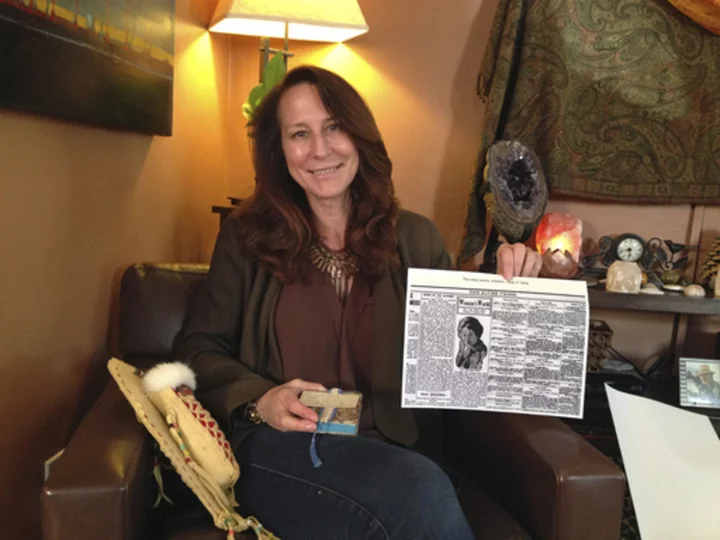
The woman who founded Father's Day was a renegade, great-granddaughter says
You could call her the mother of Father’s Day
2023-06-18 20:18

Health expert Dr Michael Mosley shares two tips for avoiding osteoporosis
Health “guru” Dr Michael Mosley has offered his advice to those seeking to reduce their risk of developing osteoporosis, a condition characterised by weak or brittle bones. The medical expert and former doctor is known for his regular appearances on The One Show, as well as his TV programmes on health and medicine. Writing in his column for MailOnline, the creator of the 5:2 and Fast800 diets said he had found his bones were not as strong as they could be while filming a series about healthy ageing in 2022. “Like many Britons, my bones are weaker than they should be,” he wrote. “While filming a series about healthy ageing last year, I had a DXA scan, which uses low-dose X-rays to see how dense (or strong) your bones are. “Although I have a sturdy spine, my hip bones aren’t in great shape, though I don’t have osteoporosis.” Dr Mosley explained that the key to avoiding osteoporis involves getting a healthy intake of both calcium and Vitamin D, as well as a short but effective burst of exercise each day. “As well as obvious good calcium sources such as dairy and leafy green veg, you may want to top up on prunes,” he suggetsed. “A study last October in the American Journal of Clinical Nutrition, involing 235 older women, concluded eating five to six prunes a day improved bone density. The theory is that anti-inflammatory compounds in prunes may slow bone breakdown.” He also suggested that daily exercise could also help, citing a study that showed two minutes of hopping each day can improve hip bone strength. In 2020, Dr Mosley claimed that men were “more deluded” than women when it came to their own weight and fitness, while fronting a Channel 4 series to help people who had gained weight during lockdown. He told the Press Association: “An awful lot of people are unaware of how much weight they put on, particularly around the gut.” Research shows that only 10 per cent of people who are obese know they are but that the figure is only 7 per cent for men, Dr Mosley said, while “women are more aware of it”. He also denied that the show, which offers practical advice to overhaul viewers’ lifestyles, was about fat shaming: “Body shaming is awful. It is incredibly ineffective. Telling people they’re fat never, ever works,” he said. “None of this is about fat-shaming. It is entirely about helping people who are obese and who want to do something about it. Any diet is only ever going to work if the person wants to do it.” Read More Jamie Foxx and Jennifer Aniston issue statements over ‘antisemitic’ Instagram post Why is every celebrity couple breaking up? Relationship experts think we shouldn’t be so shocked Eye masks, kombucha and ‘the full spectrum of milks’: Gwyneth Paltrow finally gave us a tour of her fridge Health expert Dr Michael Mosley shares two tips for avoiding osteoporosis Will Smith says Willow ‘mutiny’ changed his view on family success Who was controversial vegan raw food influencer Zhanna D’Art:
2023-08-07 14:20

'Alan Wake II' review: A horror masterpiece
There is nothing out there quite like Remedy Entertainment's Alan Wake II. A tense, slow,
2023-10-29 19:58

Pamela Anderson reveals why she plans to sell ‘all’ her old clothes – including iconic Baywatch swimsuit
Pamela Anderson is turning the page on her old life in a big way. Speaking to People, the 56-year-old actress revealed she has plans to sell her entire wardrobe full of fashion archives, including her most sought-after piece: her Baywatch swimsuit. Her desire to clear out her closet stems from an intent to “make room” for a “new life”. “I don’t like to waste. Better to clear my mind, clear my closet. Make room for this new life,” she explained. “I can’t wait to see others enjoy these pieces.” Anderson continued: “My style has undoubtedly changed over the years, and it thrills me to think others will find the joy I did. There’s no reason to hang on to it. These memories are made to share.” As of now, she’s not announced the date of her closet sale but has expressed a will to dispose “truly all of it” in a “thoughtful, sentimental way” online. While imagining the 90s icon breaking up with her renowned looks that irrevocably shaped beauty and style fads is difficult, this isn’t the first time Anderson has mentioned leaving her old aesthetic in the past. Recently, the Borat star has been substituting heavy eye makeup with a light underpainting to enhance her natural facial features following the death of her former makeup artist, Alexis Vogel, in 2019. But, also to rebel against the now favoured exaggerated beauty features. In conversation with Elle, Anderson noted of Vogel: “She was the best. And since then, I just felt, without Alexis, it’s just better for me not to wear makeup.” She continued: “I did notice that there were all these people doing big makeup looks, and it’s just like me to go against the grain and do the opposite.” Between bouncy blowouts, skinny brows, blue eyeshadow, and cropped clothing, Anderson was a driving factor in setting the fashion of the 90s and early 2000s. Being a model and on-screen star, her visibility was consuming, prompting her to become an icon of the time. Although her focus may have been more on her career, many were enamored by Anderson’s appearances behind the scenes, especially with her infamous beau Tommy Lee. The two were known to match their looks under the same rockstar, grunge tone. Anderson stuck to bodices and mini skirts while the famed Mötley Crüe member donned leather everything. Her love for corsets was honoured by many of Vivienne Westwood’s original designs. The designer, who recently passed away, often saw Anderson as a muse for her brand, like many other fashion enthusiasts. From sitting front row at Chanel and Balmain, to stunting on the Hugo Boss runway for their spring/summer 2023 fashion show in Miami, it’s safe to say Anderson’s face is rooted in the industry. However, the Playboy model couldn’t always credit herself for her iconic outfits, as she previously revealed a lot of her style creation was thought of by her partners. “There was a time in my life when everyone was doing everything for me - even my husbands were dressing me,” she noted in an opinion piece for The Guardian. “But for the first time in my life I don’t have an army of people making decisions for me. I can finally decide for myself.” In the same article, Anderson detailed her decision to no longer sport fur or leather as an animal rights activist and spokesperson for Peta. However, the Home Improvement actor told Elle she thought her old looks from the 90s were “wild and uninhibited”. “I don’t know if it was a defense mechanism or what. I just thought, ‘I’m going to have fun,” she proclaimed. Read More Pamela Anderson shares heartbreaking reason she’s ditching makeup Pamela Anderson and Naomi Campbell walk the Miami runway for Hugo Boss Pamela Anderson says she had ‘debilitating’ shyness before becoming a Playboy model Tabi Swiper: How a woman’s Tinder date committed a ‘sinister’ fashion crime 4 viral TikTok make-up trends you’ll actually want to try Secondhand September: The best places to buy pre-loved fashion online
2023-09-08 01:17

Who is Sade Bagnerise? Ne-Yo's ex-girlfriend demands primary physical custody and monthly child support for their two children
Sade Bagnerise wants her children -- Braiden and Brixton -- to stay primarily with her even though she agreed to share joint legal custody with her ex Ne-Yo
2023-06-27 16:58
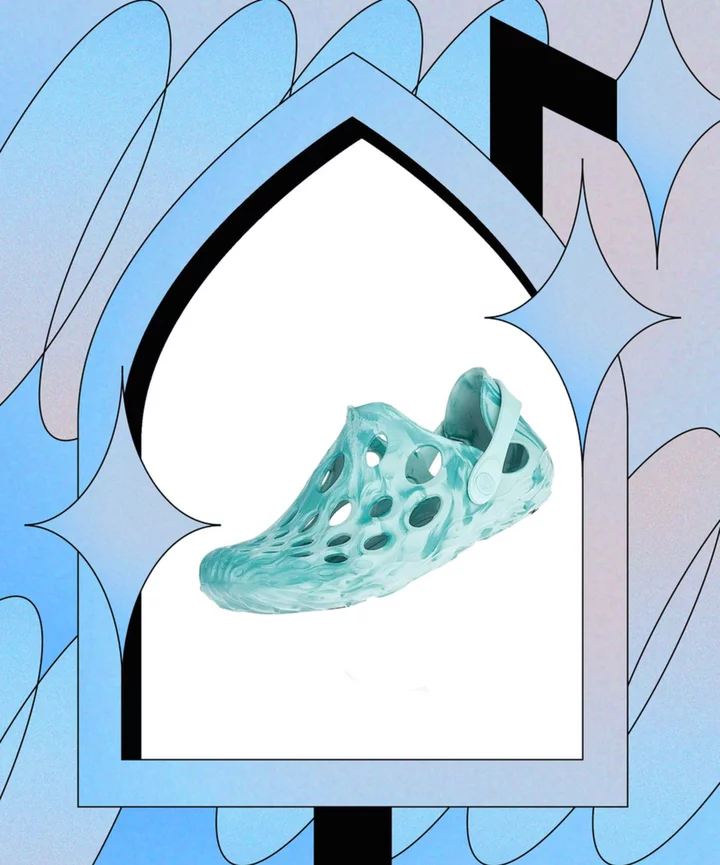
These Amazon Prime Day Shoe Deals Are R29-Editor-Approved
If you’re in the market for new shoes — be it sneakers, heels, clogs, or sandals — you’ll likely find a pair or two that fit your style and budget during this year’s Amazon Prime Day event, which comes to a close tonight. The throes of Amazon dot-com can be a dizzying place, so we sourced some of our fave shoe trends of 2023 that we’re coveting during e-commerce’s biggest week. And, yes, all of the pairs ahead were already on sale but may be on further discount now, so we suggest you add them to cart ASAP (before they sell out).
2023-07-01 04:20

'We love singing': Filipinos find joy in karaoke
At a busy tricycle terminal in Manila, driver Edgar Soriano slips a coin into a karaoke machine and belts out his favourite...
2023-10-20 11:46

'The Fall of the House of Usher's Netflix posters were the biggest clue all along
There are plenty of WTF moments in The Fall of the House of Usher, but
2023-10-18 19:53

Italy may have dodged a 'pasta strike' but food inflation is still high. Here's why
Italians were supposed to be on a "pasta strike" this week but it was called off after prices for the national staple started to fall. Zoom out, though, and global food prices are still far higher than a year ago, despite precipitous drops in the cost of key raw materials.
2023-06-29 22:49

'Peaky Blinders' responds to anti-LGBTQ Ron DeSantis ad that used footage from the show
The team behind Peaky Blinders confirmed that it had not given Florida Gov. Ron DeSantis
2023-07-06 05:25

Light show at World Cup 'dumbest idea', says Maxwell
Australia's record-breaking batsman Glenn Maxwell blasted mid-match, nightclub-style light shows at the World Cup as "the dumbest idea" on Wednesday...
2023-10-26 01:21

What we know about Threads, Meta's 'Twitter killer'
Threads, Mark Zuckerberg's Instagram-based challenge to dethrone Elon Musk's troubled Twitter, has already secured tens of millions of downloads, but it remains to be seen whether this Twitter...
2023-07-07 03:51
You Might Like...
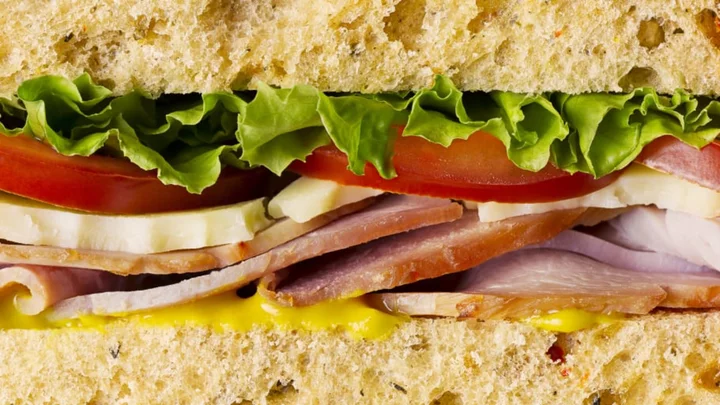
5 Ways to Define a Sandwich, According to the Law
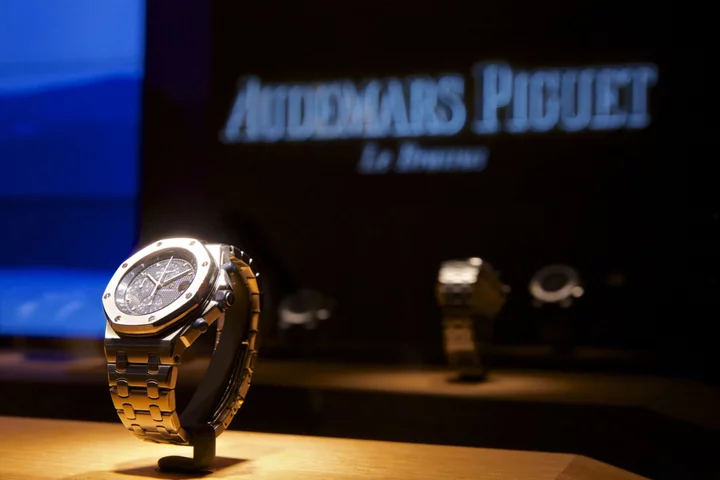
Henderson Signs Audemars Piguet as Tenant of New Hong Kong Tower

More students gain eligibility for free school meals under expanded US program

Mother asks if children should be ‘forced to share’ after son is ‘pushed’ for not sharing on splash pad

Get a lifetime of Microsoft Office and a like-new laptop for under $200

I Tried The Ordinary’s New Moisturizer — & It’s Not For Everyone

31 Fascinating Facts About Sharks
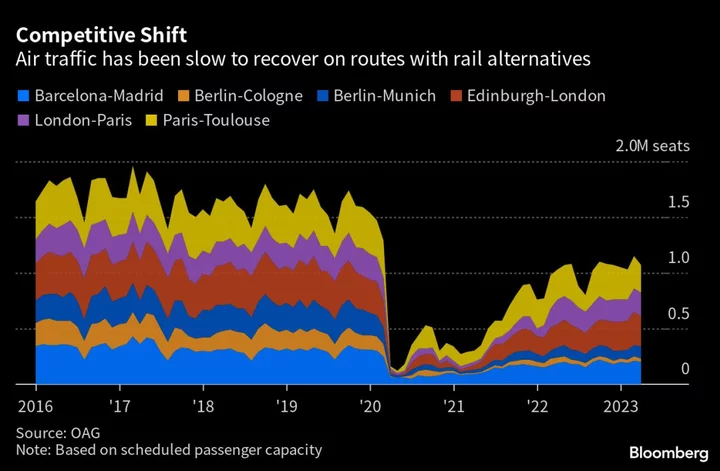
How to Have a Low-Carbon, High-Impact Summer Trip
